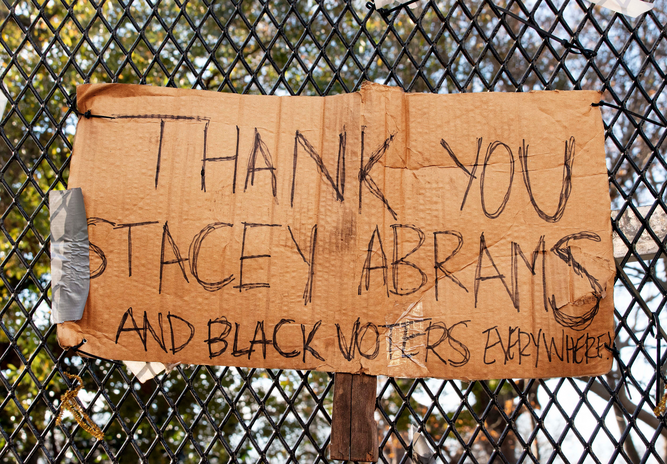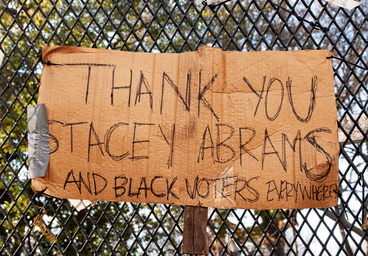WASHINGTON D.C.- On Monday night, February 22nd, American University’s Kennedy Political Union (KPU), Founders Week, and Women’s Initiative (WI) hosted a virtual discussion with Stacey Abrams, former Minority Leader of the Georgia House, first Black woman to become the gubernatorial nominee for a major party in the U.S., founder of Fair Fight non-profit, political leader, and voting rights activist. It was my personal honor to have the opportunity to interview her before the speaker event began. As a former intern on the Abrams for Governor 2018 campaign and fellow Georgian, it was one of the highlights of my career (and life) as a student media journalist in Her Campus.
The interview began and my questions centered around her position in Georgia politics and the future of her role in the ever-changing political landscape that is the newly purple state. My first question centered on her our organization Fair Fight and how extraordinarily successful it has been in registering voters from all across Georgia. It is clear that the recent blue wave there is largely attributed to Abrams’ dedication to Georgia politics and voting rights. After your years of hard work and commitment, I asked how she felt when Georgia elected Democrats to both the Presidency and Senate seats. With a huge grin, she expressed her gratitute for my volunteer work on her campaign (greatest moment of my life) and her jubilation for a blue Georiga. After her gubernational loss, she explained, it hurt to see her loss play out on a national platform. While she did allow herself to grieve, she quickly went back to work and the outcome, she stated, “was more exciting than I [she] imagined it would be.”
While I wanted to get a glimpse of what her political future may hold, I also wanted to understand the future of Georgia’s political landscape. While Georgia did elect Biden, Harris, Warnock, and Ossoff, Georgia’s 14th district also elected Republican Marjorie Taylor Greene to Congress, demonstrating two very different political ideologies at play. With the future of Georgia politics looking differently than it has in the past few decades, I wanted her insight and to guage her confidence levels on steering Georgia’s blue path and the role she sees herself playing in its new political landscape. Abrams went on to explain that Georgia is more of a purple state than a blue state. “It will take time before it is permanently blue…we see now that demographic changes proceed electoral changes so we must marshal our resources towards these future elections in order to keep Georgia on a blue path,” she explained. Abrams plans to continue her action in Fair Fight to extend voter registration methods and put an end to voter supression.
Abrams closed the interviews and event with advice for our current administraiton and those wanting to enter poltics. “Working across the aisle does not mean compromising your values…what we can not do is spend our time and our treasure trying to convert someone’s belief systems.” Abrams emphasized the bipartisan nature we all must adopt.
Speaking with Stacey Abrams was one of the peak moments in my career in journalism and it was the highest honor to learn from such an iconic figure in politics. After declining to run for Senate after losing the Governor’s race, her esteemed work in Georgia that warranted the election of the first Jewish-millennial and Black Senators from Georiga, a Black-Asian woman as Vice President, and a Democrat for President, makes a pretty good argument to postion her as one of the most consequential women in United States history.
Photos: Her Campus Media


